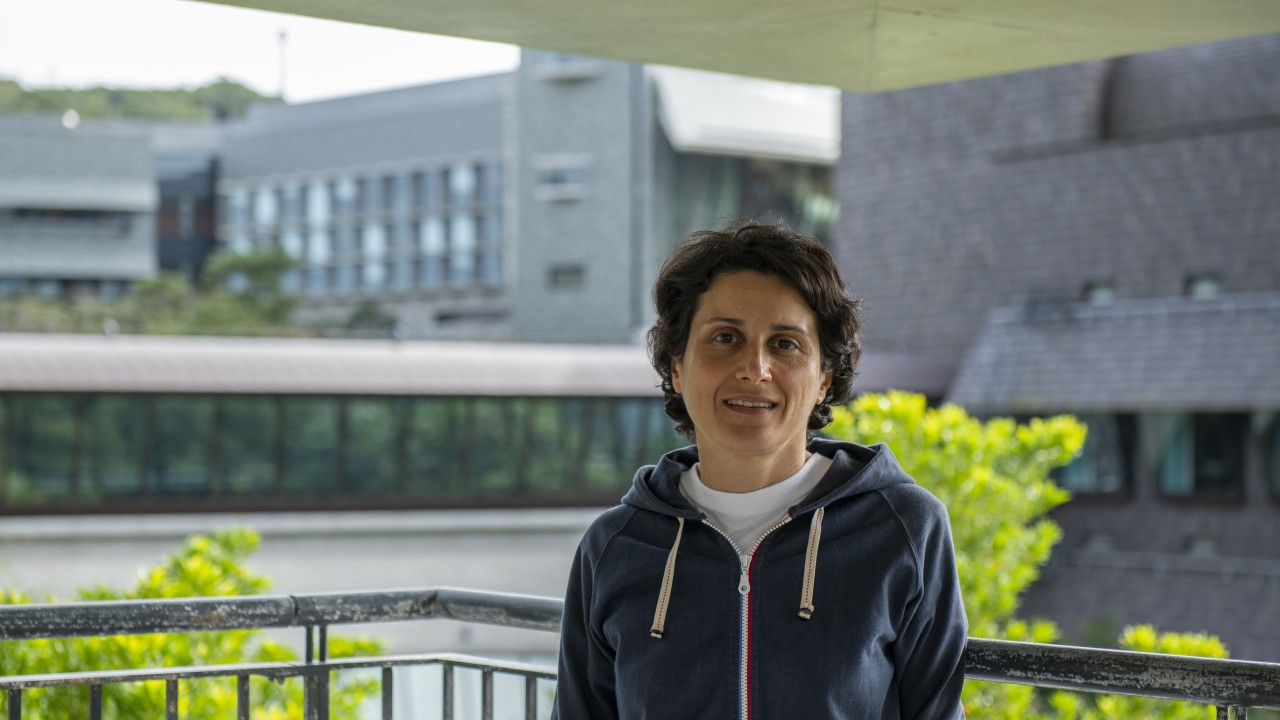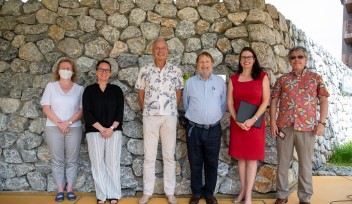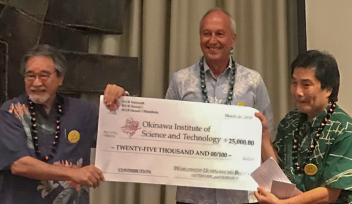OIST researcher Matin Miryeganeh pledges legacy gift to OIST

Dr. Matin Miryeganeh, a staff scientist at the Okinawa Institute of Science and Technology (OIST), recently signed a testamentary gift agreement. The contract commits her to giving 100% of her total assets to OIST in her will.
The future gift will enable a new fund, the “Matin Miryeganeh Fund for Supporting Female Students from Developing Countries” to be established, with the purpose of helping female PhD students from low-income countries come to OIST, by providing financial assistance such as stipends or travel grants in supplement to the university’s educational budget at the time.
“I want to have a role, however small, in helping with the education of people in need. I also want to give back in some way for the support that OIST has given me,” said Matin. “I’ve chosen to focus on female scientists from developing countries because I am that woman.”

Born, raised and educated in Iran, Matin has known firsthand the unique challenges faced by many girls and young women in developing countries who aspire towards a career in science.
“When I was eight years old, my mom was diagnosed with cancer. That was the end of my childhood. There was this huge weight of sudden responsibility and expectations that was upon me, that I felt I would never be able to live up to. My dad was a very good man, but he had to take care of my mom, so he ended up relying on me to help run the home. It was strange as my brother who is two years older than me was not expected to do much,” said Matin.
After seven years of sickness, her mother passed away. Afterwards, Matin found a farewell letter in her mother’s bed, in which she had expressed a wish to see Matin go to university.
“The four years of high school without my mom were the saddest years of my life. I lost my grandparents, my aunt and my uncle as well. My father became very depressed, but refused to get help. It was very difficult to concentrate and study, as I always had to be standing by in case I was needed. But I had decided that I not only wanted to go to a very good university like my mom wished, but I also wanted to work in one too,” Matin said. “So far I have kept that wish alive.”
At that time in Iran, competition for national university places was fierce. Attending a private school, along with extra college preparatory lessons were often essential to pass the national university entrance exams – a luxury that Matin didn’t have.
“But one of the earliest lessons life taught me was that even if you don’t have the best environment, equipment, support or opportunities, you can make up for it – to a large extent – by working harder,” said Matin.
For Matin, her need to make the grades led to her cutting out leisure time, reducing her sleeping hours and forgoing dinner, so that she would not be responsible for cooking it. She also faced increasing tensions with her father, who couldn’t bear how quiet the house became when she studied. “To this day, I still sleep only four hours a night, a souvenir from those early days!”
In the end, she gained a full academic scholarship for a four-year bachelor’s course in Plant Sciences at Alzahra University, a top university based in Tehran, followed by a second scholarship for a master’s in Plant Systematics and Ecology at the University of Tabriz, another highly-ranked university.
Following her master’s, Matin decided to apply for a scholarship funded by Japan’s Ministry of Education, Culture, Sports, Science and Technology (MEXT), which allows foreign students to study for a PhD in Japan.
“I couldn’t return home if I wanted to focus on my application, exams and interviews. I also needed to publish my paper and self-study to improve my English, all of which required a stable internet connection. But since I had graduated, I had to leave my dorm, and single women in Iran were not allowed to rent a place alone or go to a hotel. So, I was practically homeless,” she explained. “We were not allowed to stay overnight inside university buildings, but a security guard felt bad for me and let me sleep on a table in a storeroom and sneak out in the morning.”
“It was tough, but it was worth it to receive the scholarship,” she added. “Still, even after coming to Japan, I’ve had to continue to work hard to catch up. The gap between the education I received in Iran compared to what my peers had experienced was unbelievable. I’m still catching up!”
Matin has now lived in Japan for the last thirteen years, first completing her PhD at the University of Chiba before becoming a postdoctoral researcher at Kyoto University. She later joined OIST in 2016.
“I have always had this feeling of debt to Japan – I feel like this country cared more about my education and saw my potential in a way that my own family and country never did. I felt so appreciative to Japan for the opportunity,” said Matin.
For Matin, OIST was the most diverse and positive environment she had ever worked in. “I loved working on the mainland, but when I came to OIST, I realized how much more I love it here. This is an exceptional university, with a lot of opportunities to grow and learn.”
With her donation, Matin wishes to honor the memory of Mr. Koji Omi and Dr. Sydney Brenner for their belief in the creation of such a unique, international, and high-class university while keeping a vision of improving the lives of local Okinawans in their heart. She has also dedicated the fund to the memory of both her parents, as almost three years ago, her father unexpectedly passed away too.
“My mother and father were incredibly kind and generous people. This fund is my way of showing the same kindness and generosity, so that other young female students can have the opportunity to come to OIST and develop their love and passion for science in a warm, inclusive space.”
For press enquiries:
Press Inquiry Form













